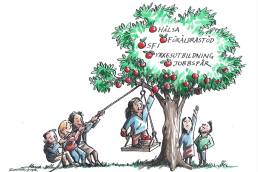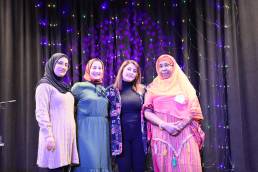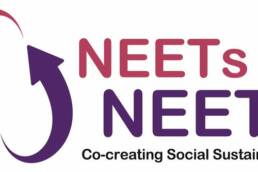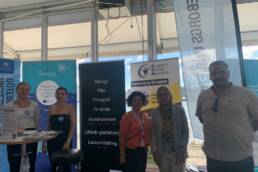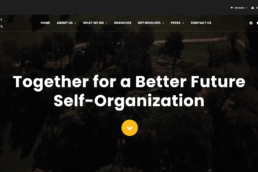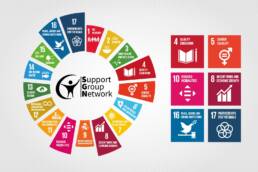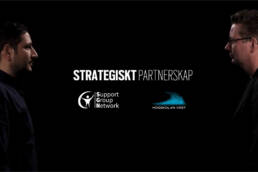Support Group Network-SGN Sweden ́s Privacy Policy –How We Process Your Personal Data.
Support Group Network-SGN is keen that you feel confident in all your dealings with us. We comply with GDPR, the new data protection regulation, which means that we respect your privacy and your right to control your personal data. Our guiding principles are simple. We are transparent about which data we collect and why. We protect your data in the best possible way.
Our privacy policy describes which data we collect, why we collect it, how you can have control over your data and how you can contact us. The policy applies in all contexts: when you visit our website, use any of its services, visit us on social media or get in touch with us in other ways, for example via email or an app. The policy also applies to data we receive via phone or regular post, or data you provide to us in any other way.
Our privacy policy applies whether you are in contact with us as a donor, member, volunteer or someone just interested in our activities. It also applies when you come in contact with us in your professional role or as an employee.
Support Group Network-SGN is the data controller in the manner described below, and we are responsible for processing this data in compliance with applicable law. This is highly relevant to you as a member or stakeholder. You can always contact us at Support Group Network-SGN at the address on the last page of this policy, regardless of where in the organisation your data is processed.
The personal data we collect
Support Group Network-SGN primarily collects personal data directly from you. Examples of personal data we collect include your name and your contact information, such as phone number, email address, LMA number for asylum seekers or physical address. Account number and personal identity number are other examples. Support Group Network-SGN may use your personal identity number to update your data from other public registers, such as SPAR (the national register of personal addresses), if it is necessary to maintain good record maintenance (that is, when it is important for identification purposes to ensure that no one else receives your mailings and that we have the correct address). We may also use your mobile phone number to obtain your name or otherwise supplement your data.
Sometimes we obtain your data from other sources, and in such cases we will inform you where we have obtained the data from. We do this during our first contact with you.
Support Group Network-SGN will record personal data in connection with these events:
a) When you register as a member.
b) When you register as a donor.
c) When you sign up for or order a service offered through our various channels.
d) When you fill in your email address or mobile phone number on our website.
e) When you make a donation using our website, SMS, Swish or any other channel or app.
f) If you sign up for Support Group Network-SGN ́s newsletter.
g) If you sign a petition or other collection of signatures.
h) If you contact us via email, phone, our website or social media.
i) When you visit our website or visit us through any app, provided that you accept our cookies. The information collected there may in some cases be personal data; see more under “About cookies”.
j) When you sign a list of participants for any of our activities.
k) If you are a candidate or elected official in one of our associations.
l) For employment or internship purposes.
How and why we use the collected information
Support Group Network-SGN processes personal data primarily for the purposes listed below, as well as for any additional purposes specified at the time the data are collected
1) Administration – This includes data we need to process so that we can run our business and which are clearly necessary from the perspective of efficiency and/or for technical reasons. This means that we will use your personal data in the following cases.
a) When you email any of our employees or one of our official addresses, your data is used to maintain contact with you. The same applies when we email you.
b) When you call any of our employees or our switchboard, your data is used to maintain contact with you.
c) When you participate in our activities, your data may be used to carry out the activity, for example to place an order or comply with accounting requirements.
d) If you are in contact with us in your professional role or otherwise become involved in our activities, your data may be present in meeting minutes, memos, as references on invoices or similar.
e) If you are applying for a job with us, we process your data in order to assess whether you are the
candidate we want to hire and in order to make contact with you.
f) When you are hired as an employee, your data will be used for personnel administration, payroll administration and ensuring your physical safety, but also for meeting our own IT and information security requirements.
g) In our financial management and control, personal data appears on invoices, vouchers, reconciliation documents, and in investigations and other documentation, as well as in communication with the parties concerned.
h) In our operational control, personal data is present in our internal reporting systems and in reports and presentations.
2) Marketing and communication of information
a) Information about gift-giving, membership, ordering of services, demonstrated support of our operations, etc. is stored and analyzed and is used to provide you with offers (such as different ways to get involved and show your support) as well as general and targeted marketing.
b) To manage donor profiles and to conduct analyses and market research.
c) For system administration and to develop statistical data about our users’ behavior and patterns; the data is aggregated and de-personalized so that you as an individual are not identified.
d) To develop, deliver and improve our products and services, including the different ways and channels you can use to support our work and receive information about what we have achieved. We do this by analyzing your behavior on our website, in our social media and in other channels including apps.
e) Personal data is also used in analyses for individual segmentation/profiling in order to develop targeted offers and services.
f) To send you information and promotions via email, apps, push notifications or other digital communications channels or by regular post or telephone when you have an active relationship with us.
g) To contact you via email, app, phone or regular post about other offers, promotions or services that we believe may be of interest to you. Note that you can, at any time, opt out of this marketing.
h) To provide you with relevant recommendations, offers and custom services based on what others with similar behavior patterns have shown interest in, what kind of services you have selected, and what you have viewed and shown interest in.
i) To enhance your user experience of our website, apps, platforms, etc. by customizing the content displayed for the device you use and at the same time make it more useful.
j) To send important messages that communicates changes in our terms and policies.
3) Donor services and member services
a) To receive and record donations and membership.
b) To fulfill orders of services via any of Support Group Network-SGN’s channels.
c) To enable a high level of service, such as handling your requests, correcting incorrect data or sending information that you have requested, like newsletters.
Information we may disclose
We may share information to companies that process data on our behalf so that we can provide you with good service and can develop our business in a cost-effective way that achieves the greatest possible benefits for you. This can involve distribution, analysis, payment services, or organizing events and offering other services. When you become a member of Support Group Network-SGN , you will be automatically linked to a local association, and your personal data will be disclosed to this party. When we process personal data, we always do so with high security and confidentiality. Support Group Network-SGN collaborates only with partners that process personal data within the EU/EEA or with companies that maintain the same level of protection as within the EU/EEA, for example by signing up with the Privacy Shield framework between the EU and the US.
About cookies
When you use our website and apps, data are collected using cookies. However, this is done only after we obtain your approval separately. Information is then stored about your use and the pages you visit. This information can include technical information about your device and internet connection, such as
operating system, browser version, IP address, cookies and unique identifier. When you visit our website where our services are provided, different technologies can be used to identify you so that we can learn more about our users. This can be done directly or through the use of a third-party technology. If you do
not accept cookies, this may mean that we cannot provide certain services. Relationship between the National Association and the local associations
We are one Support Group Network-SGN, but there is a division of responsibilities between our National Association (SGN) and our local Support Groups associations. You can always contact us at Support Group Network-SGN at the address on the last page of this policy, regardless of where in the organization your data is processed. You can also refer directly to the relevant local Support Group. The National Association(SGN) manages the central member and donor register. Each local Support
Group has access only to the member register that contains its own members. The National Association(SGN) provides all local Support Groups with technical and organizational solutions, such as for email and document management. It also provides policies and procedures
relating to their practical application. Each local Support Group is independently responsible, and therefore acts as data controller, for the
personal data that is processed in its own Local Support Group. Information is transmitted between the National Association(SGN), local Support Groups, and vice versa.
Legal basis, storage and erasure of personal data
When you provide personal data to us, you are giving your permission to Support Group Network-SGN to record and store information about why you provided it (for example, to become a member or donor, or to order materials) and to process the provided personal data for specified purposes. There should be a legal basis for all processing. In this respect, we use the following:
1) Fulfillment of contract– For example, the actual requirements for becoming a donor or member or for making a purchase.
2) Legal obligation – For example, we are required to provide your data to the Swedish Tax Agency or to manage our own accounts.
3) Legitimate interest – When it is considered acceptable to use your data in our mission to help immigrants to integrate in the society in the easiest way and when our interests can therefore be considered to outweigh your interests.
4) Consent – When you explicitly state that we may process your data and that you understand what that means. This is how our objectives are linked to each legal basis:
1) Donor and member services - Fulfillment of contract and legitimate interest
2) Marketing and communication - Legitimate interest of information
3) Administration - Legitimate interest, legal obligation, fulfillment of contract and consent
4) Our care operations - Consent, legal obligation, legitimate interest
5) Notifications of concern - Performing a task in the public interest
If we use legitimate interest as a basis, it will only be for the purposes indicated above. Note that you may, at any time, withdraw your given consent by contacting us. See “How to contact us” below. Data processing is carried out in accordance with current legislation, and personal data is therefore not retained for the purposes of processing for longer than necessary. We have internal procedures in place to ensure this. Support Group Network-SGN will store your personal data for as long as you have a relationship with us, for example if you are a member or donor, and for some time thereafter depending on the purpose. Information that is older than three years will not be used for marketing purposes. This means that the data is erased when it is no longer relevant or necessary for the analysis or direct marketing purposes for which it was collected. Some information may be retained longer if required by
other legislation, such as the Swedish Bookkeeping Act. However, when we process personal data we always do so with high security and confidentiality.
Your rights and choices
You have rights regarding your personal data and you can influence which information is stored. Support Group Network-SGN will on its own initiative or at your request correct information that is discovered to be incorrect. You can at any time request that your information be deleted or that its use be limited by
contacting us (see “How to contact us” below). If you believe that your rights are not being respected by us, feel free to contact Support Group Network-SGN or the Swedish Data Protection Authority
(www.datainspektionen.se ).

